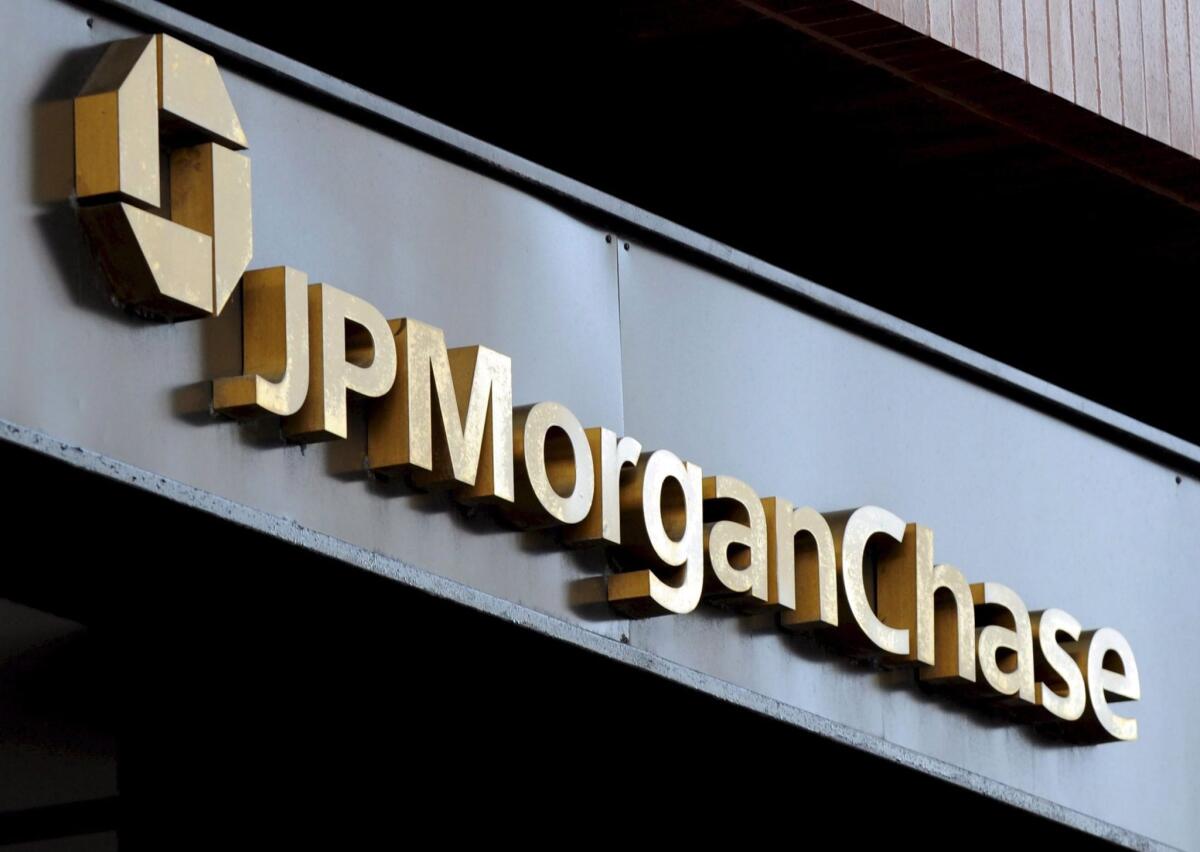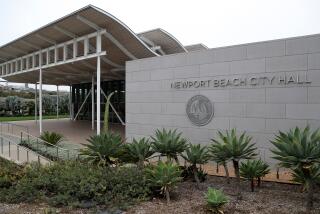There’s no profit in L.A. bashing JPMorgan Chase

- Share via
Los Angeles City Councilman Gil Cedillo wants to punish JPMorgan Chase for its various financial misdeeds, possibly by cutting off business with the banking giant. But as city leaders learned a few years ago when
Occupy L.A. pushed for a similar divestiture from big banks, outrage can be expensive.
Cedillo introduced a motion last week asking city staff to determine how much business the city pension funds and various departments have with JPMorgan Chase — one of many banks under scrutiny for the toxic mortgage schemes that triggered the recent recession — and the time frame and procedures needed to sever ties with it.
In a statement, Cedillo declared, “Someone must hold them accountable.” But someone already has. The U.S. Justice Department, along with state regulators, reached a record settlement with the bank. It required JPMorgan Chase to admit it sold mortgages to investors without disclosing how risky they were — and to pay $13 billion. In total, the bank paid $20 billion in legal settlements last year to resolve lawsuits over its mortgage-backed securities and its involvement in the Bernie Madoff Ponzi scheme.
Is that punishment enough? Maybe. Maybe not. But what can the City Council do that the Justice Department, California Atty. Gen. Kamala Harris and an array of banking regulators haven’t already done?
Several years ago, then-Councilman Richard Alarcon proposed removing city deposits and pension fund investments from banks that weren’t making enough loan modifications or other fixes to prevent foreclosures. He was backed by the Occupy L.A. activists camping outside City Hall. But City Administrative Officer Miguel Santana warned that severing ties with those banks would cost the city at least $58 million in termination fees and higher interest payments. Ultimately, the city scaled back the proposal, enacting a requirement that banks disclose information on local loans and foreclosure activity when they bid for city business.
Another question: Why single out JPMorgan Chase? The city attorney has sued Wells Fargo, Bank of America and Citigroup for allegedly saddling minorities with loans they couldn’t afford, resulting in a disproportionately high number of foreclosures in their neighborhoods. Why aren’t they included?
The fact is that L.A. relies on these banks — for long-term financing to build bridges and restore lakes, and for short-term financing to pay the bills. Employee pension systems, already underfunded, are heavily invested in JPMorgan Chase and other big banks. There is still a lot of anger at Wall Street, which seemed largely immune from the pain of the recession it helped create. But the City Council would do better to focus on managing the city for the benefit of residents rather than trying to send a message that would only end up hurting them.
More to Read
A cure for the common opinion
Get thought-provoking perspectives with our weekly newsletter.
You may occasionally receive promotional content from the Los Angeles Times.










